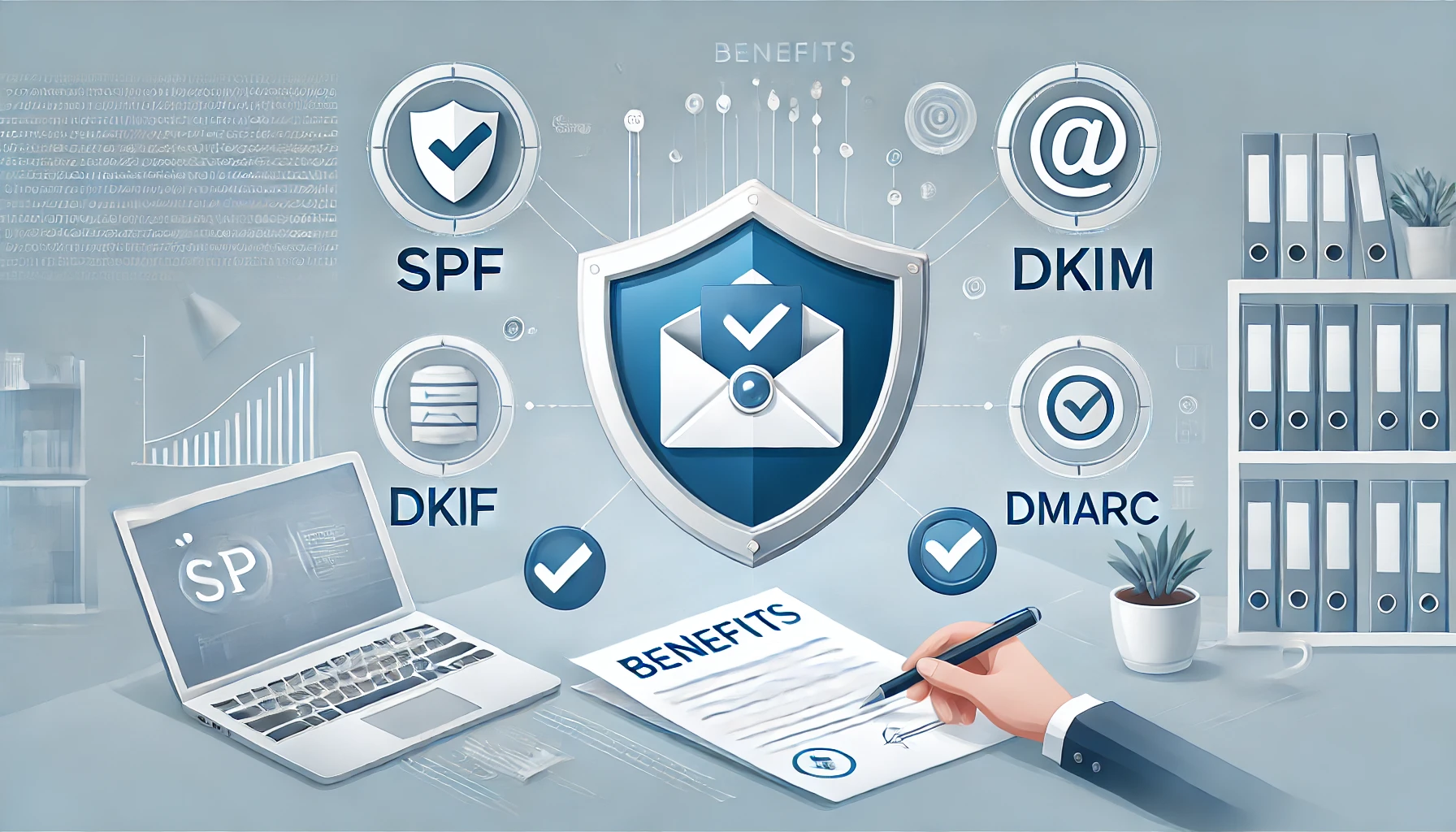Protecting Your Business Email: Understanding SPF, DKIM, and DMARC

In today’s digital world, email is a critical communication tool for businesses of all sizes. However, email is also a common target for cybercriminals who use tactics like spoofing to send fraudulent emails that appear to come from your business. To protect your brand, ensure email security, and maintain customer trust, it’s essential to implement email authentication protocols like SPF, DKIM, and DMARC. In this post, we’ll break down what these terms mean in simple terms and why they are crucial for your business.
What is SPF?
SPF (Sender Policy Framework) is like a VIP guest list for your email domain. It helps identify which mail servers can send emails on your domain’s behalf. When an email is sent, the recipient’s mail system will check the SPF record (a simple DNS TXT record) to verify whether the sending server is authorized. The email might be flagged as suspicious or rejected if the server is not on the list. SPF helps reduce spoofing, but it’s not foolproof on its own—additional protection is needed.
What is DKIM?
DKIM (DomainKeys Identified Mail) is a digital signature for your emails. When you send an email, DKIM adds a unique encrypted signature to the email header. When the recipient receives the email, their email system uses this signature to verify that it genuinely comes from your domain and hasn’t been altered. Unlike SPF, DKIM works even if the email is forwarded, ensuring an additional layer of trust.
What is DMARC?
DMARC (Domain-based Message Authentication, Reporting, and Conformance) ties everything together. It ensures that either SPF or DKIM (or both) is correctly aligned with the email’s visible “From” address. This prevents cybercriminals from tricking recipients by sending emails that look like they are from your business but are not. DMARC provides guidelines on what to do if an email fails authentication—whether to quarantine, reject, or allow the message—and offers valuable reporting on email activity.
Why Does This Matter for Your Business?
Implementing SPF, DKIM, and DMARC is not just about security—it’s about protecting your brand and maintaining customer trust.
Here’s why it matters:
- Prevent Email Spoofing: Avoid situations where someone pretends to be your business by sending fake emails to your customers or partners.
- Protect Your Reputation: Emails that fail authentication checks are often marked as spam, hurting your brand’s reputation and reducing email deliverability.
- Increase Security: By ensuring only legitimate emails get through, you reduce the risk of phishing attacks and data breaches.
By setting up SPF, DKIM, and DMARC, your business can safeguard its email communications, maintain a positive reputation, and provide a safer experience for everyone interacting with your brand. Need help setting this up? At The Nerdy Cloud Guy, we’re here to guide you every step of the way—get in touch today!
